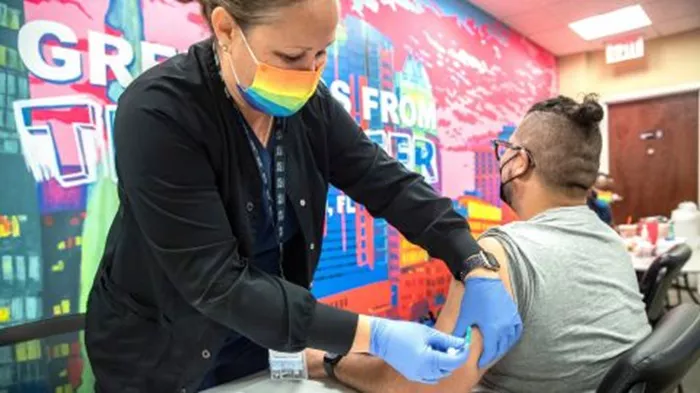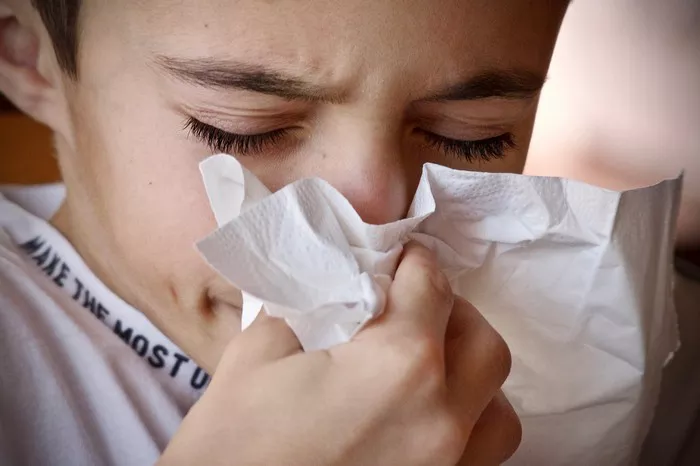In a recent escalation of global health concerns, the World Health Organization (WHO) declared mpox a global public health emergency on August 14, 2024. This urgent announcement follows a significant surge in cases, particularly in the Democratic Republic of the Congo (DRC) and neighboring African countries.
Rebecca Katz, a professor at Georgetown University and director of the Center for Global Health Science and Security, provided insight into the ongoing mpox crisis, drawing parallels with the COVID-19 pandemic and emphasizing the need for early intervention.
Mpox and the WHO’s Global Health Emergency Declaration
Mpox, formerly known as monkeypox, is an infectious disease that has long been endemic in Central and West Africa. It causes a painful rash, blisters, fever, and swollen lymph nodes, and has led to periodic outbreaks over the past two decades. Epidemiologists have been monitoring thousands of cases annually, primarily in Central Africa.
In 2022, the WHO declared mpox a public health emergency of international concern when the virus rapidly spread across Europe, the Americas, and eventually to 110 countries. This outbreak, attributed to Clade II of the virus, primarily affected men who have sex with men. Although the emergency was contained by May 2023, the virus persisted, and a new strain, Clade 1b, began spreading in the DRC in 2023.
As of now, Clade 1b has caused over 15,600 cases and 530 deaths in the DRC alone. This strain appears to be more virulent and transmissible, spreading through close physical contact, making sexual partners, household contacts, children, and healthcare workers particularly vulnerable.
The recent WHO declaration was driven by the alarming spread of Clade 1b in Central Africa, coupled with the lack of sufficient vaccines and antiviral treatments on the continent. The global response to this outbreak is now a critical priority.
Vaccine Availability and Challenges in Africa
One of the key challenges in containing mpox is the insufficient availability of vaccines, particularly in Africa. Despite the long-standing presence of mpox in the region, access to vaccines has been limited, with affected countries relying on donations from wealthier nations. The high cost of vaccines—approximately $100 per dose—further complicates efforts to control the outbreak, especially in conflict-prone regions where distribution is challenging, and vaccine acceptance is uncertain.
Mpox Risk in the U.S. and Comparison with COVID-19
While mpox does not spread as easily as COVID-19, requiring close personal contact for transmission, there is still a risk of the virus spreading to the United States, particularly through international travel. However, the general public in the U.S. faces a low risk, according to the Centers for Disease Control and Prevention (CDC). Those in close contact with individuals from affected regions or healthcare workers are advised to take additional precautions.
The U.S. is better equipped to handle mpox cases due to the availability of vaccines and antiviral treatments, a stark contrast to the situation in Africa.
Applying COVID-19 Lessons to Mpox Containment
The COVID-19 pandemic taught the global health community the importance of early action, robust surveillance, and a coordinated response to emerging health threats. Katz emphasized that these lessons are critical in addressing the current mpox outbreak.
The ongoing mpox crisis highlights the persistent global inequality in access to healthcare and medical resources. Outbreaks in regions with limited healthcare infrastructure can quickly escalate into global threats, as seen with the current situation in Central Africa.
Katz also noted that the field of pandemic preparedness often suffers from a “cycle of panic and neglect.” Following the end of the COVID-19 pandemic and the previous mpox emergency, the world became complacent, leading to the current mpox crisis. It is essential to break this cycle and maintain vigilance even after an outbreak appears to be contained.
The Role of the Global Community and Multilateral Organizations
Multilateral organizations like the WHO play a crucial role in coordinating the global response to mpox. Their responsibilities include raising resources to support affected populations, enhancing surveillance, and ensuring access to vaccines and antiviral treatments. Effective communication and situational awareness are also vital to help impacted communities take appropriate preventive measures.
Why Mpox Cases Originate in Africa and the Global Implications
Mpox is a zoonotic disease, meaning it is transmitted from animals to humans. The virus is most commonly found in animals native to the tropical rainforests of Central and West Africa, such as Gambian rats and monkeys. While the initial cases of mpox may originate in Africa, the virus can spread globally, as demonstrated by past outbreaks.
In 2003, cases of mpox were reported in the U.S. after people came into contact with infected pets exposed to imported animals from Africa. This incident underscores the importance of global vigilance, as the virus can easily cross borders through human and animal carriers.
Conclusion
The ongoing mpox outbreak serves as a stark reminder of the interconnectedness of global health. The lessons learned from COVID-19—early action, robust surveillance, and coordinated responses—are more relevant than ever. As the global community rallies to contain this latest health crisis, the need for equitable access to healthcare and medical resources remains a pressing challenge that must be addressed to prevent future pandemics.
[inline_related_posts title=”You Might Be Interested In” title_align=”left” style=”list” number=”6″ align=”none” ids=”11545,11473,11469″ by=”categories” orderby=”rand” order=”DESC” hide_thumb=”no” thumb_right=”no” views=”no” date=”yes” grid_columns=”2″ post_type=”” tax=””]

































